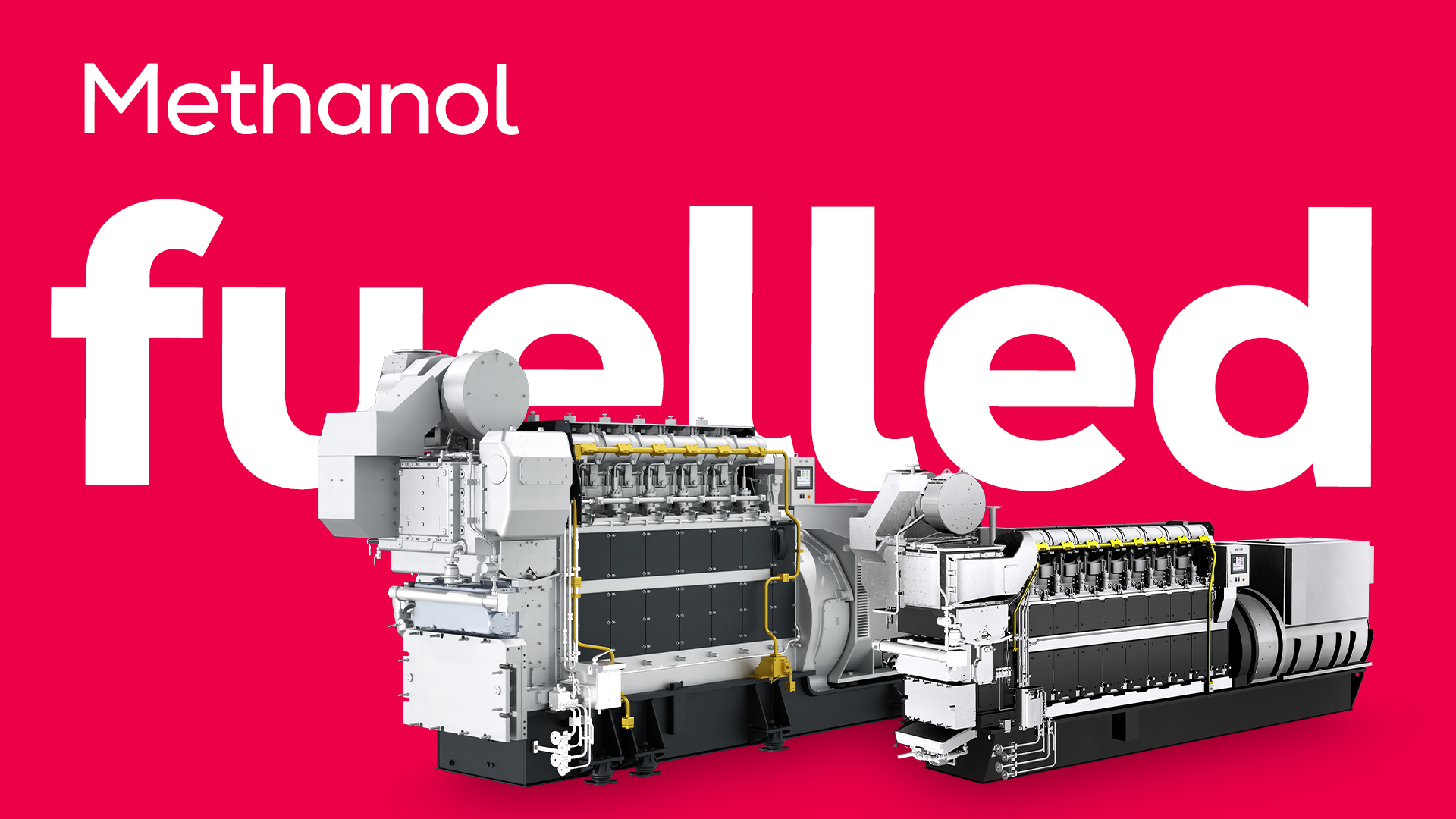
L21/31DF-M and the new L27/38DF-M
The L21/31DF-M (former MAN L21/31DF-M) was the first small-bore dual-fuel methanol GenSet in our portfolio, while the L27/38DF-M (former MAN L27/38DF-M) became the next milestone and addition to our small-bore engine portfolio.
Home of the L21/31DF-M
Meet our first small-bore GenSet fuelled by methanol
By loading the video you agree to YouTube's privacy policy.
conventional L21/31 and L27/38 engines in service
reduction of lifecycle greenhouse gas emissions possible with e-methanol

Proven design
The foundations of these engines are the trusted and proven L21/31 and L27/38 GenSets, which have jointly accumulated more than 290 million operating hours, with thousands of engines in service.
Key benefits of the methanol-fuelled small-bore engines
Our methanol-fuelled engines L21/31DF-M and L27/38DF-M are based on proven technology. Additional fuel flexibility is ensured by the dual-fuel principle and possibility to operate on methanol.
- The engines retain the reliability and low fuel consumption of conventional engines
- These engines offer a solution that fits nearly all applications
- They ensure security of power supply and confident handling of load steps
- A methanol conversion will be available as retrofit for existing L21/31 with delivery from 2025 onwards. For L27/38 GenSets the retrofit will be available later.
These key features make the methanol-fuelled small-bore GenSets a perfect choice for shipowners focusing on reliable and future-proof solutions by means of alternative fuels.


Talk to our experts
Are you ready for green methanol?
Newbuild or retrofit? What are the costs? What are the benefits? Take the lead in sustainable shipping by contacting us today!
Perfect design features for efficient and reliable operation
The methanol-fuelled small-bore engines run on methanol or conventional fuels. When powered by green methanol, they have the potential to reduce greenhouse gas emissions. The ability to run engines on green methanol as drop-in fuel further increases fuel flexibility.
The engines are based on the existing L21/31 and L27/38 GenSets and their well-established technology, with thousands of engines in service and millions of operating hours so far.

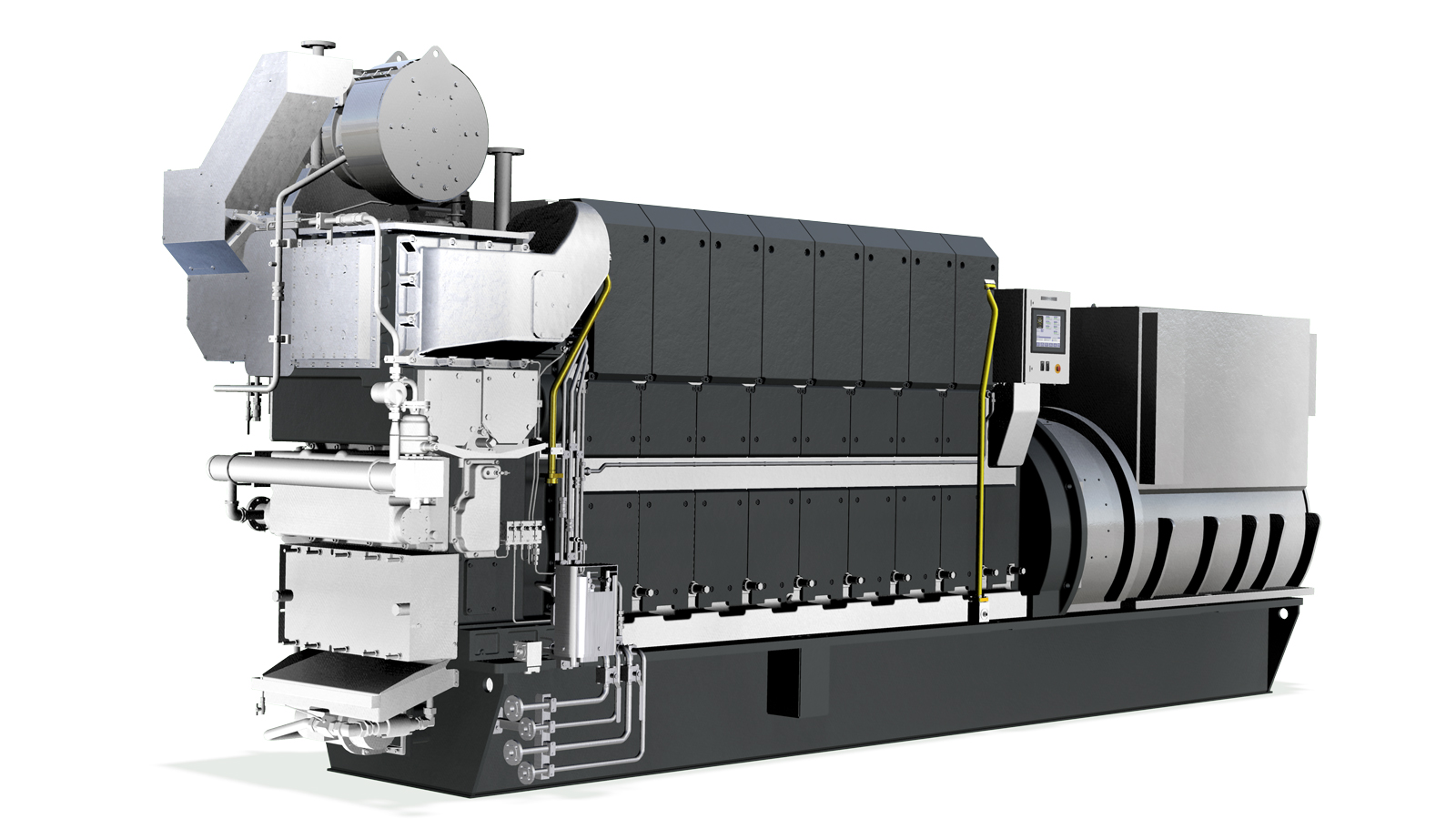
Overview – L21/31DF-M
The port fuel injection (PFI) concept of the L21/31DF-M uses proven components, providing additional simplicity and an attractive capital outlay. The long time between overhauls (TBO) gives you flexibility for maintenance planning as well as saving time and costs.
Optimized port fuel injection
The port fuel injection (PFI) system uses a methanol injection nozzle installed outside the combustion chamber. This simplified design removes the risk of blocked nozzles in diesel mode and reduces investment costs thanks to its easy installation and integration with standardized components.
SaCoS control system and cybersecurity
The safety and control system Everllence SaCoS supports a fast and reliable data-transfer between the engine and the power management system in the control room by easy cable connection. The engine control system is attached to the engine and features an intuitive user interface and a colour display in different languages. The electric speed governor enables fast response.
Perfect match for Everllence B&W ME-LGIM two-stroke methanol engine
The first ME-LGIM engine came into service in 2016. Since then, we have accumulated more than half a million running hours on methanol alone, which provides a solid base for new developments. The L21/31DF-M is a perfect match for this methanol-fueled propulsion engine.
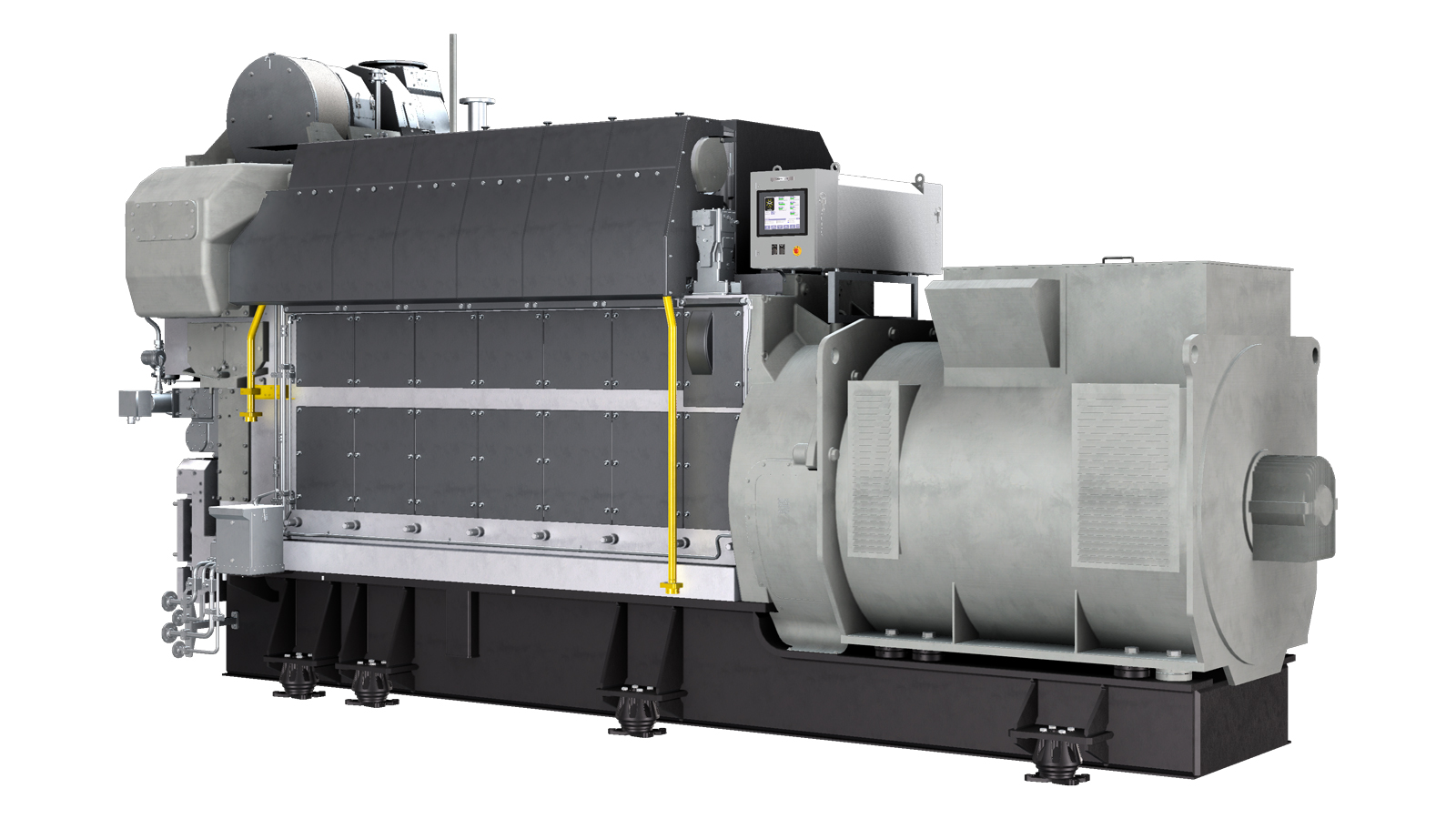
Overview – L27/38DF-M
The L27/38DF-M is more powerful and can be used as a GenSet or for diesel-electric propulsion. The design supports an optimal methanol fuel share with only minimum amounts of fuel oil acting as pilot oil.
Low-pressure fuel supply system
The methanol supply system for L27/38DF-M is a cost-optimized low-pressure system, effectively making it a profitable solution providing a lower CAPEX.
Increased fuel flexibility
The possibility to operate engines on methanol as a drop-in fuel means that e-methanol and bio-methanol increase the fuel flexibility and the potential of methanol as an option for GenSet applications on large merchant marine vessels as well as for propulsion solutions for smaller vessel types.
SaCoS control system and cybersecurity
The safety and control system Everllence SaCoS supports a fast and reliable data-transfer between the engine and the power management system in the control room by easy cable connection. The engine control system is attached to the engine and features an intuitive user interface and a colour display in different languages. The electric speed governor enables fast response.
Frequently asked questions regarding the Everllence small-bore engines
What else is there to know about these engines?
Core questions on methanol-fuelled engines answered
The conversion to methanol will be available for existing L21/31 engines with delivery from 2025 onwards. For L27/38 GenSets, the retrofit option will be available later.
Both engine types can run on a wide range of different fuels: conventional fuel types include HFO, MDO, MGO, LSFO and ULSFO. The use of biofuels and methanol are a big additional advantage. The use of biofuels or green methanol support the maritime energy transition.
The methanol-fuelled small-bore engines are suited for nearly all kinds of merchant vessels. As GenSets they are ideal for container vessels, tankers, bulkers or PCTCs. The L21/31DF-M is also a perfect match for the methanol-fuelled Everllence B&W ME-LGIM two-stroke engine.
For diesel-electric propulsion, both L21/31DF-M and L27/38DF-M can be applied to smaller vessel types.
Download
Get more info about our small-bore methanol portfolio

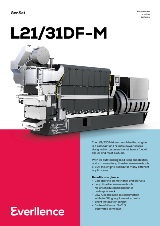

Power through uncertainty
Our portfolio of small-bore four-stroke GenSets for auxiliary and propulsion applications is constantly evolving to meet the requirements from the maritime industry. Do you want to stay on top of this? Then watch the recording of this Everllence ExpertTalk.


The Type Approval Test (TAT) for the 7L21/31DF-M (Dual-Fuel-Methanol) GenSet has successfully been passed in China. The TAT received approval from all major classification societies present at this important milestone event.

Discover our portfolio of reliable and efficient four-stroke small-bore engines
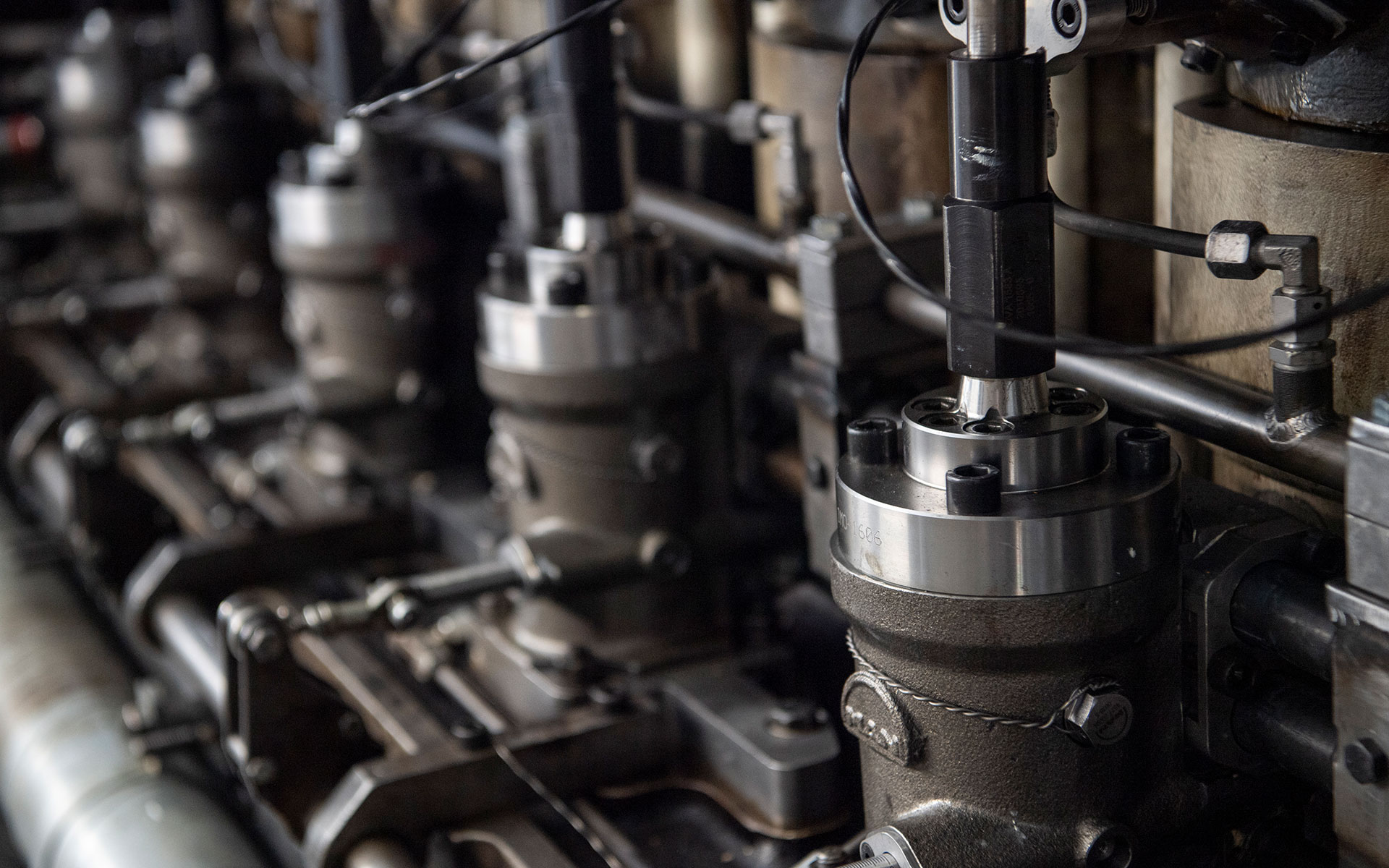
Engineers in Denmark are making shipboard power low-emission with the developing of a four-stroke methanol engine.
